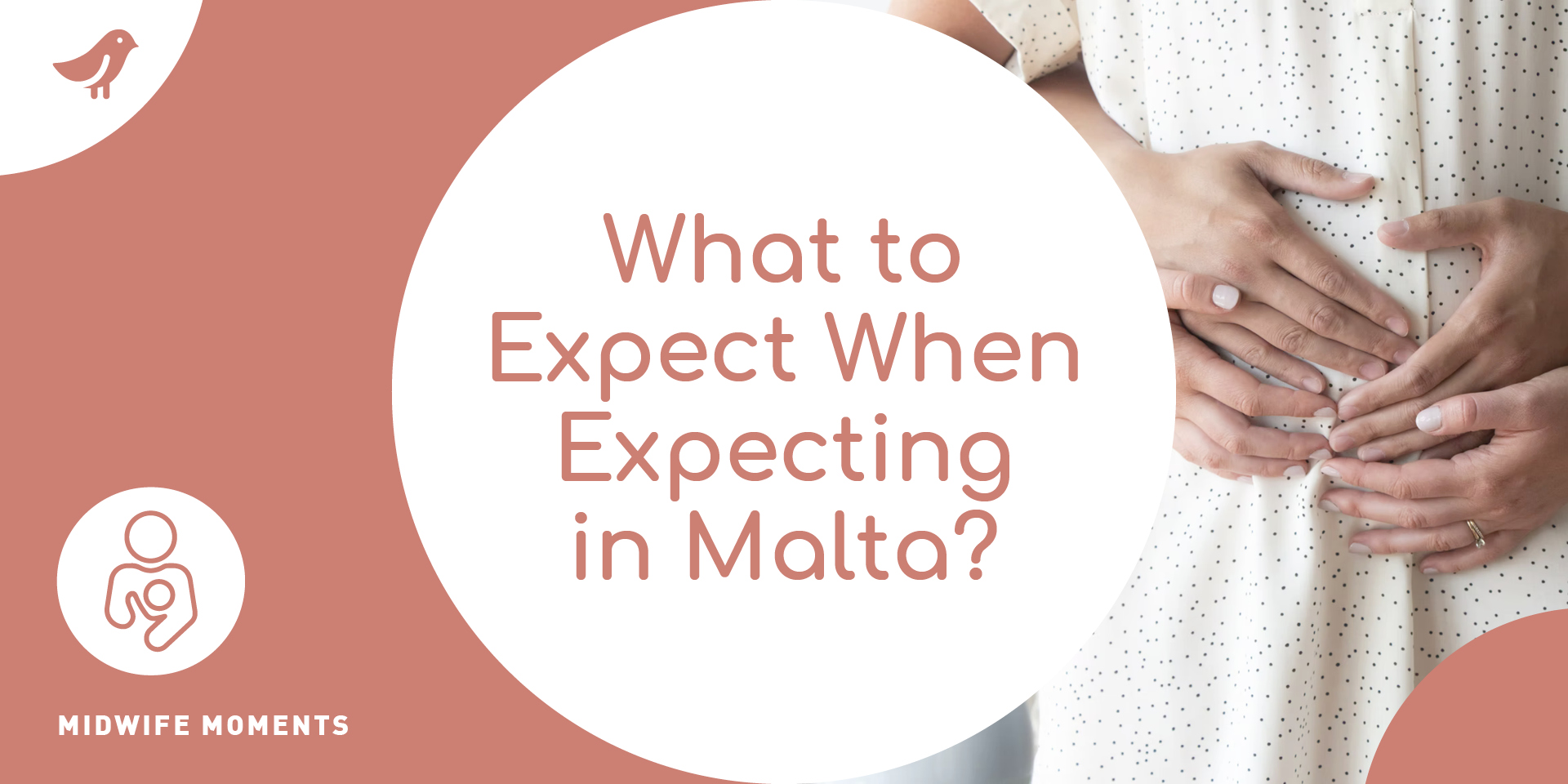Congratulations! Whether planned or not, those two pink lines bring with them a barrage of emotions, sometimes at polar ends on the feelings spectrum! To make the logistical side easier for you, in this article we outline the first steps you need to take to ensure that you receive the best possible care and support along the way when pregnant in Malta.
I’m pregnant! Now what?
Here’s a step-by-step guide to follow when pregnant in Malta:
- Book an appointment with your GP. Your GP will prescribe folic acid if you’re not already taking it. The GP will provide you with general advice. This includes: healthy eating and exercise, supplements, and medical advice on the safety of any medication you’re currently taking, and specific blood tests if needed.
- Your GP will also prepare a referral ticket to Mater Dei Hospital (MDH) or the Gozo General Hospital (GGH) if you’re residing in Gozo.
- Some women opt to book an ultrasound with their OBGYN around the 8 week mark. This is done to confirm the pregnancy and rule out an ectopic, if you’re concerned about that.
- An MDH or GGH consultant is assigned to you. You can choose your consultant – if you have no specific preference, a consultant will be assigned at random. If you already have a private OBGYN, but they do not practice at the hospital, you can ask them to suggest a consultant.
- The first appointment at the hospital takes place towards the end of the first trimester. A midwife goes over your health history, after which you’ll meet your consultant for a dating scan (and a more ‘accurate’ estimated due date (EDD)). A number of blood tests are done during this appointment. You will be given a blue card which you must carry with you throughout the pregnancy and take to all your appointments. At this stage, you’re also booked in for the 20 week anatomy ultrasound scan.
- In the first trimester you have the option of having a nuchal scan done privately. This scan helps determine if your baby is at risk of certain congenital conditions but does not diagnose a condition.
- The anatomy scan is done when you’re between 20 and 24 weeks pregnant. It is offered by the state healthcare system.
- Up to 30 weeks, visits are scheduled monthly. You will be either asked to visit MDH or your local health centre if your pregnancy is low risk. In Gozo, all visits are done at GGH. During your monthly visit, a nurse checks your blood pressure and urine. A midwife or your consultant checks foetal growth and foetal heart activity. This is done manually at health centres and via ultrasound at hospital.
- Once you’re between 26 and 30 weeks pregnant, you also have the option of having a 4D ultrasound at a private clinic. This scan allows you to see your little one even more clearly.
- Between 30 and 36 weeks, visits are scheduled every two weeks. These are followed by weekly visits until your EDD and often daily visits if you go over your EDD.
You can choose to attend all your appointments through the state healthcare system or privately, with an OBGYN or midwife of your choice.
Support throughout pregnancy
A free, antenatal education program, called Parentcraft, is available at MDH and GGH. This course covers early pregnancy and also childbirth. There are specific groups for English-speaking parents-to-be, parents with other children, those expecting multiples and minor parents-to-be. The Malta Midwives Association also organises preparation courses which you can view here. There are also plenty of other private options, including at MyMama.
Pregnancy isn’t always easy and sometimes there are tough conversations to be had. FPAS Malta, run by trained volunteers, provides free information on reproductive choices in Malta in a caring and non-judgemental way.
I’m an expat in Malta and pregnant. Do I have to pay for maternity care?
Expats with work permits have access to free healthcare in Malta. Maternity care is part of the public health care system and is easily accessible if you’re residing in Malta legally.
Some countries, including the UK and Australia have bilateral agreements with Malta for free medical and hospital care, but this is for stays up to one month.
If you’re not covered under the state system, there are affordable medical insurance options available. Healthcare in Malta is mostly inexpensive so many expats only take out basic hospital cover and pay out of pocket for day-to-day medical expenses, such as visits to the GP and medication. Do take into consideration though that visits to the doctor (or paediatrician) will increase once your little one is here.
Can I use my EHIC card to give birth in Malta?
If you’re an EU national on a temporary visit to Malta and happen to give birth, you can use your European Health Insurance Card (EHIC) for free medical treatment. You can also use your card for a routine appointment. However, if you’re planning to give birth in Malta, contact your local health authority and apply for prior authorisation (+ form S2), to make sure your costs will be covered.
It’s important to note that while the EHIC card provides coverage for necessary and emergency treatment that locals also get for free, it is not a substitute for health insurance.
Pregnancy is generally regarded as a joyful time. However it can come with its own challenges (raging hormones is just one example). Having a support system in place and knowing what maternity services are available to you when pregnant in Malta helps you navigate these nine months without added stress. Good luck!
Looking for more helpful articles? Check out our main page for a variety of topics.
Head to our Facebook Page and Instagram to keep updated with our latest content!



